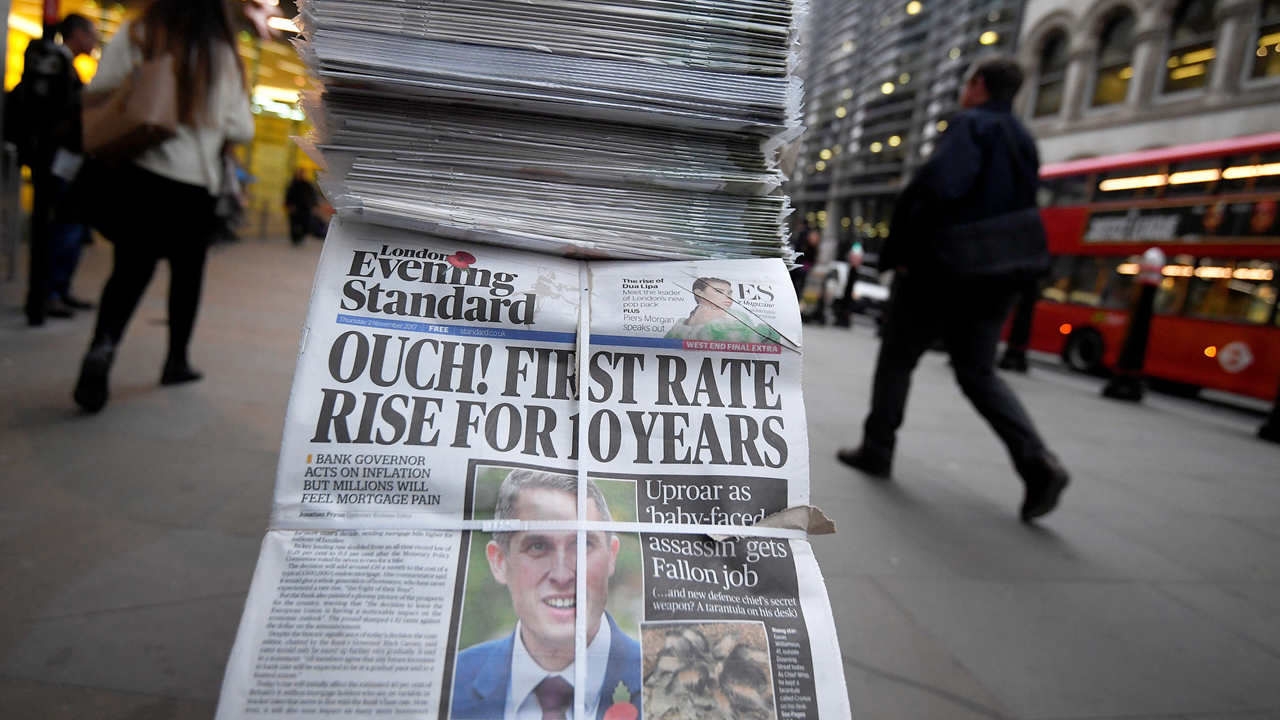
Business
17:59, 03-Nov-2017
Will the BOE interest hike impact London’s real estate market?
By CGTN’s Du Zhongyan

London's real estate market has been under a lot of pressure since the UK decided to break off from the European Union last year. The Bank of England (BOE) Thursday ordered the first interest rate rise in more than a decade from 0.25 percent to 0.5 percent, which will immediately result in higher mortgage bills for millions of families.
What repercussions will BOE's move have on London's housing market as Brexit talks hang in the balance?

Newspaper headlines herald the Bank of England's decision to raise interest in central London, Britain, November 2, 2017. /VCG Photo
Newspaper headlines herald the Bank of England's decision to raise interest in central London, Britain, November 2, 2017. /VCG Photo
London's housing price has been falling for six straight months since April this year, according to the data from the Office for National Statistics house price index. September saw the greatest slump of home prices since the global financial crisis started in 2008.
Although the BOE's move to hike the interest rate is widely expected, many fear it would weigh on the country's housing market as Brexit negotiations are locked in a stalemate.
However, Nick Whitten, research director at property consultancy Jones Lang Lasalle (JLL) said, “it will have minimum impact to the transaction levels of London’s house prices.”
The past decade has witnessed foreign investors pouring money into London's real estate market. Official data shows that 70 percent of the home buyers in London's central business district are from abroad, with 68 percent of them coming from Asia.
Foreign investors have been examining the fall in the average property price by 0.6 percent year-on-year in the last three months, the first such decline since 2005, according to data gathered by Nationwide, the UK’s largest mortgage provider.
But Xiao Ke, President of Chinese Property Association in the UK noted, “From a long-term point of view, I do not think the rate increase and the Brexit fallout would have a significant impact on Asian property investors. London will remain a very appealing market for international assets allocation.”

VCG Photo
VCG Photo
Despite the historic significance of BOE’s move, the committee chaired by the Bank’s Governor Mark Carney, said rates would only be eased up further very gradually.
Currently, 30 percent of households in London have mortgages, official data showed; 60 percent of these mortgages are on fixed interest. That means, even after BOE raised its interest rate by 25 basis points, the mortgage a household has to pay per year will increase by only 180 pounds on average.
June Deasy, head of mortgage policy at UK Finance, said, “The majority of borrowers will be protected from any immediate effects of today’s small increase because they have a fixed rate mortgage.”

SITEMAP
Copyright © 2018 CGTN. Beijing ICP prepared NO.16065310-3
Copyright © 2018 CGTN. Beijing ICP prepared NO.16065310-3